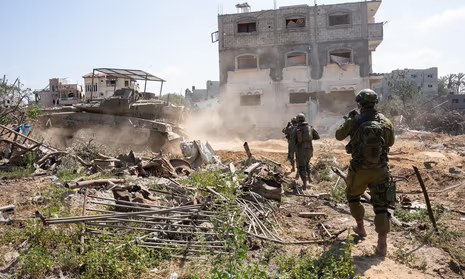Latest Developments
A senior Israeli official predicted on May 29 that the Gaza war would last at least until the end of this year. “We expect another seven months of combat, in order to deepen our achievement and achieve what we define as the destruction of the military and governing capabilities of both Hamas and the Islamic Jihad,” Israeli National Security Advisor Tzachi Hanegbi told Kan radio, alluding to the main objective set out by the Netanyahu government in the war it declared after the Hamas-led cross-border Palestinian terrorist rampage of October 7.
Expert Analysis
“Hanegbi’s prediction has important ramifications for the region, and for the United States. Israel is reinforcing its long-standing position that any hostage-release deal with Hamas would bring a Gaza truce at most — not the unilateral halt to the war that this Iran-backed terrorist group demands. We also shouldn’t forget that the war against Hezbollah continues and could yet escalate. The Biden administration should dispense with the idea that this war can be tidily swept under the carpet in time for the November election. Israel is fighting for its survival. It deserves bipartisan American support no matter what the political timetable.” — Mark Dubowitz, FDD CEO
“Israel must proceed carefully with the elimination of Hamas in Gaza, and this will take time. Rooting out a terrorist group that hides behind civilians and digs tunnels under houses and hospitals is a complex operation. But a premature ceasefire would be like putting a band-aid on a deep gash.” — David May, FDD Research Manager and Senior Research Analyst
Iran’s Role Highlighted
Hanegbi also emphasized Iran’s central role as the main backer of Hamas and other terrorist proxies around the region. “We have been attacked by Iranian proxies on seven fronts,” Hanegbi observed. “This is a war upon which we are united. It is a long war against a regional power that is trying to cast a noose around us — and whoever tires first, loses.”
In addition to Gaza, Israel has been trading fire with Hezbollah in southern Lebanon as well as being targeted by long-range strikes from Iran-backed terrorist groups in Syria, Iraq, Yemen, and Iran.
 Eurasia Press & News
Eurasia Press & News




